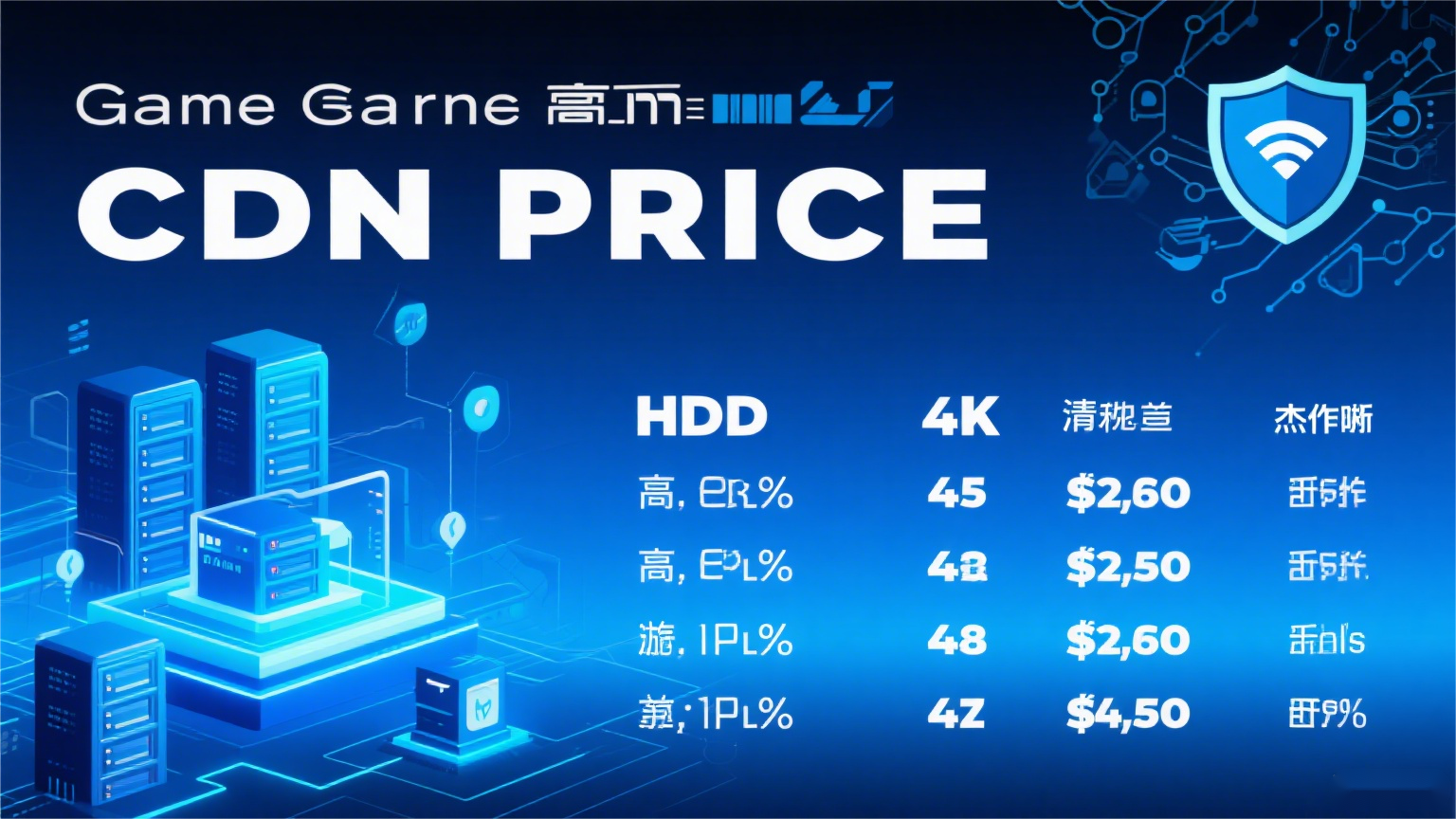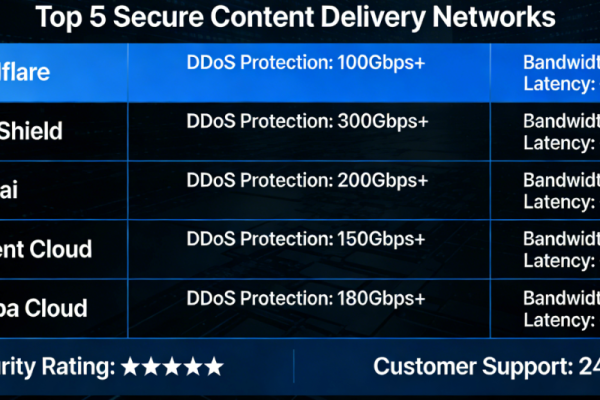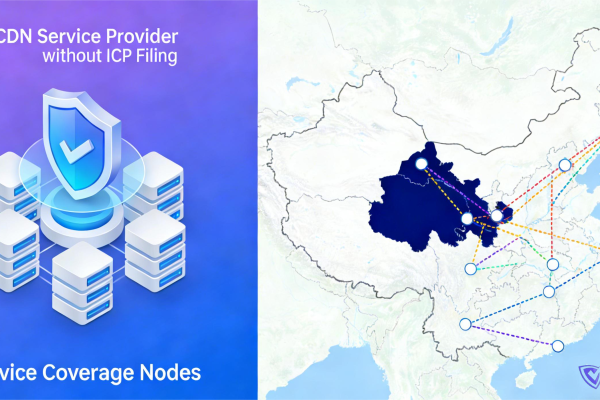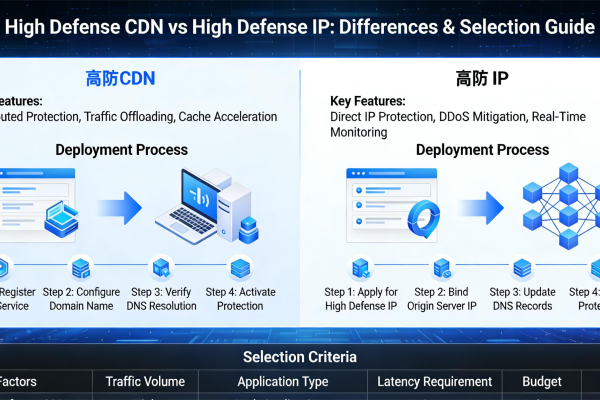Comparing the prices of high-security CDN for games: Which service offers the best value for money?
I recently helped several friends at Chinese game studios choose a high-security CDN, and I thoroughly researched the price lists of major providers. While sipping coffee in my Silicon Valley apartment and sorting through this data, I suddenly realized how complex this industry is—same offerings advertised as "T-level defense" can vary in price by two or three times, and the hidden clauses are as

Recently, I’ve been helping a few friends from domestic game studios choose high-protection CDNs, digging through the pricing sheets of all the major providers on the market. Sitting in my Silicon Valley apartment, sipping coffee while organizing this data, I suddenly realized how deep the water runs in this industry—
Under the same banner of “T-level protection,” prices can differ by two to three times, with hidden terms as numerous as pay-to-win traps in a game.
Cloudflare’s enterprise plan requires direct negotiation with sales, but the free version is actually sufficient for small-scale attacks. Last week, I helped a small indie game team test it—they have just over 20,000 monthly active users, and when hit with a 30Gbps DDoS attack, the free version surprisingly held up.
But if you really want advanced protection, such as Magic Transit with AI-based behavioral analysis, the base fee starts at $5,000/month, plus about $0.10 per GB of traffic.
The worst part is that Asia-Pacific nodes cost extra, which is quite unfriendly for games with a large Chinese player base.
Alibaba Cloud’s International Edition DDoS High Defense IP looks cheap on paper—$388/month for basic protection with 20Gbps defense included.
But in actual use, you’ll find that anything beyond 20G costs an extra $15 per G. Last month, a Chinese mobile game launched and was hit with an 80G attack—the daily protection fee alone shot up to over $1,000.
And that’s not even counting the China Telecom BGP bandwidth, which must be purchased separately at $1.20 per Mbps/month. For a game with 500,000 concurrent players, bandwidth costs alone can easily hit six figures.
Akamai’s Prolexic is the true premium option—the sales pitch starts with “$1 million annual contract minimum.”
But the high price comes with a reason—last year, a well-known esports game was crippled by a 600Gbps attack, and switching to Akamai brought it back online in just ten minutes.
However, a closer look at the contract revealed a detail: traffic fees at the Japan scrubbing center are triple those in Europe or the US, meaning East Asian gaming companies are effectively paying a “regional tax.”
Unexpectedly, Korean provider CDNetworks turned out to be a hidden gem in terms of value. For the same 300Gbps protection spec, Cloudflare quoted $20,000/month, while CDNetworks offered an all-inclusive plan for $9,000.
In testing, the Shanghai node latency was 67ms, far better than some Western providers that route through Japan at 180ms. The downside is that their documentation is a mix of Korean and English, and if you need tech support at 3 AM, you’ll have to account for the time difference.
Here’s the three-tier advice I give my friends now:
Small teams: Cloudflare free plan + Alibaba Cloud pay-as-you-go;
Mid-sized projects with $1M/month revenue: CDNetworks Asia-Pacific custom package;
Those who really need to withstand terabit-level attacks: just go with Akamai’s enterprise contract.
Lastly, never believe ads claiming “unlimited protection”—one Hong Kong provider’s contract had a hidden clause capping scrubbing at 300G, in font so tiny you’d need a magnifying glass to read it.
Standard
Great for large teams
800
/Monthly-

DDOS Protection Value: 200Gbps
-

CC Defense Value: 40000QPS
-

Number of Domains: 6
-

SSL Certificate: YES
-

Anti-blocking: YES
-

Websocket: YES
-

Network Acceleration: YES

Business
Advanced projects
2000
/Monthly-

DDOS Protection Value: 400Gbps
-

CC Defense Value: 50000QPS
-

Number of Domains: 50
-

SSL Certificate: YES
-

Anti-blocking: YES
-

Websocket: YES
-

Network Acceleration: YES
Enterprise
For big companies
5000
/Monthly-

DDOS Protection Value: 500Gbps
-

CC Defense Value: 200000QPS
-

Number of Domains: 100+
-

SSL Certificate: YES
-

Anti-blocking: YES
-

Websocket: YES
-

Network Acceleration: YES
Honestly, choosing high-protection is like equipping game gear—there’s no absolute best option.
Just yesterday, I helped a friend remove an “Intelligent Threat Analysis” add-on from their plan—it cost $8,000/month, but with open-source WAF rules and some custom scripts, you can achieve about 70% of the same effect.
The savings were enough to buy three physical servers—in times like these, even the richest landowners aren’t exactly flush with extra cash.
Share this post:
Related Posts

Hong Kong High-Defense CDN Recommendations (2026 Latest Edition)
Not all Hong Kong high-defense CDNs can withstand attacks. This article compares the protection stre...

No-ICP CDN Recommendations | Which Ones Actually Speed Up Mainland China AND Can Withstand Attacks?
How to choose a no-ICP CDN? Based on real webmaster tests, this article compares multiple CDN provid...

What's the Difference Between DDoS-Protected CDN and DDoS-Protected IP? A Clear Guide to Help You Choose.
What's the difference between a DDoS-protected CDN and a DDoS-protected IP? Which one should your we...
